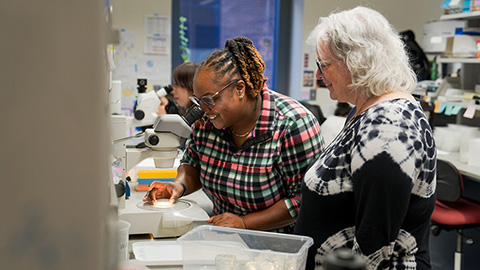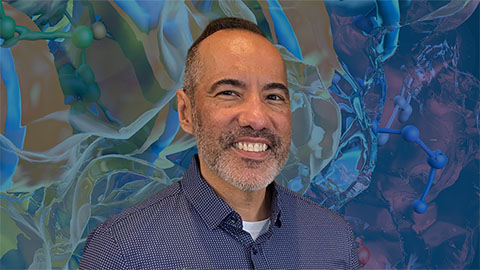In memoriam: Donald Bruce McCormick
Donald Bruce McCormick, a pioneer in the nutrition field and a member of the American Society for Biochemistry and Molecular Biology since 1963, died April 21 at the age of 89.

Born Sept. 15, 1932, in Front Royal, Virginia, McCormick received his early education in Virginia and Tennessee. During high school, he took courses at the Oak Ridge Institute for Nuclear Studies (home of the Manhattan Project), which spurred his interest in science. He won the 1950 Westinghouse Science Talent Search for implementing autoradiography in a school project, and this helped him gain admission to Vanderbilt University for his bachelor’s degree in chemistry. He continued at Vanderbilt, studying the xylulose/xylitol pathway, and received his Ph.D. in 1958 under the mentorship of Oscar Touster, the first chair of the university’s molecular biology department. He then did postdoctoral research on vitamin B6 metabolism and pyridoxal kinases in Esmond Snell’s laboratory at the University of California, Berkeley.
McCormick moved to Ithaca, New York, in 1960 to join the Graduate School of Nutrition of Cornell University. In a 2004 chapter in the Annual Review of Nutrition, he described his days at Cornell as “busy and productive.” While there, he taught biochemistry and nutrition courses and received many honors, including a 1970 Mead Johnson Award and a 1978 Osborne and Mendel Award from the American Institute of Nutrition. In 1979, he moved to Emory University, where he served as a professor and chair of the biochemistry department for 15 years. After his retirement from Emory in 1999, McCormick and his wife, Jean, helped build the university’s emeritus college to “to help maintain the scholarship of those who are still active and able,” he wrote.
It was while serving as a consultant biochemist in the Interdepartmental Committee for Nutrition for National Defense survey in Spain in summer 1958 that McCormick developed his keen interest in vitamins. His research work focused on water-soluble vitamins and riboflavin chemistry and included biopolymer modifications, pathogen photoinactivation using riboflavin, and affinity studies of different enzymes and riboflavin-binding proteins. He published 320 research papers with 7,545 citations and served as a member and chair of many professional societies. He became the president of the American Institute of Nutrition in 1991.
McCormick loved nature and loved to travel around the world to experience wildlife.
He is survived by his wife, Jean; daughter, Sue; and sons Don (and wife, Kristen) and Allen.
Enjoy reading ASBMB Today?
Become a member to receive the print edition four times a year and the digital edition monthly.
Learn moreGet the latest from ASBMB Today
Enter your email address, and we’ll send you a weekly email with recent articles, interviews and more.
Latest in People
People highlights or most popular articles

Building a stronger future for research funding
Hear from Eric Gascho of the Coalition for Health Funding about federal public health investments, the value of collaboration and how scientists can help shape the future of research funding.

Fueling healthier aging, connecting metabolism stress and time
Biochemist Melanie McReynolds investigates how metabolism and stress shape the aging process. Her research on NAD+, a molecule central to cellular energy, reveals how maintaining its balance could promote healthier, longer lives.

Mapping proteins, one side chain at a time
Roland Dunbrack Jr. will receive the ASBMB DeLano Award for Computational Biosciences at the ASBMB Annual Meeting, March 7–10, just outside of Washington, D.C.

2026 voter guide
Learn about the candidates running for Treasurer-elect, Councilor and Nominating Committee.

Meet the editor-in-chief of ASBMB’s new journal, IBMB
Benjamin Garcia will head ASBMB’s new journal, Insights in Biochemistry and Molecular Biology, which will launch in early 2026.

Exploring the link between lipids and longevity
Meng Wang will present her work on metabolism and aging at the ASBMB Annual Meeting, March 7-10, just outside of Washington, D.C.

